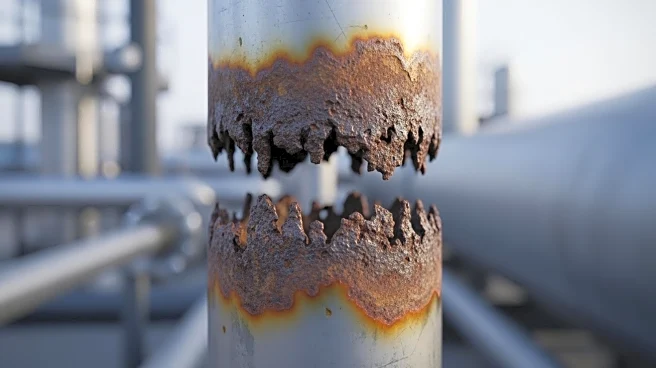What's Happening?
An investigation into the leaking of 316L stainless steel heat exchanger tubes in a sugar factory has revealed corrosion issues due to acidic flue gases. The study identified the presence of halide ions, including chlorides and fluorides, as major contributors to the corrosion damage. The improper material selection for the heat exchangers was determined to be the root cause of the corrosion and subsequent leaking.
Why It's Important?
Corrosion in industrial equipment can lead to significant operational disruptions and financial losses. Understanding the mechanisms behind corrosion is crucial for improving material selection and preventing future incidents. The findings highlight the need for industries to consider environmental factors and chemical interactions when selecting materials for equipment. This research may lead to advancements in corrosion-resistant materials and improved industrial practices.
What's Next?
Industries may need to reassess their material selection processes and consider alternative alloys for better corrosion resistance. Collaboration with material scientists and engineers could lead to the development of new alloys or coatings. Regulatory bodies may update guidelines to ensure safer and more durable industrial equipment. Stakeholders, including manufacturers and environmental agencies, will likely be involved in discussions about future steps.
Beyond the Headlines
The investigation underscores the importance of understanding chemical interactions in industrial environments, moving towards more sustainable practices. Ethical considerations regarding corporate responsibility and environmental impact will be central to discussions. The research aligns with global efforts to improve industrial safety and reduce environmental harm.









